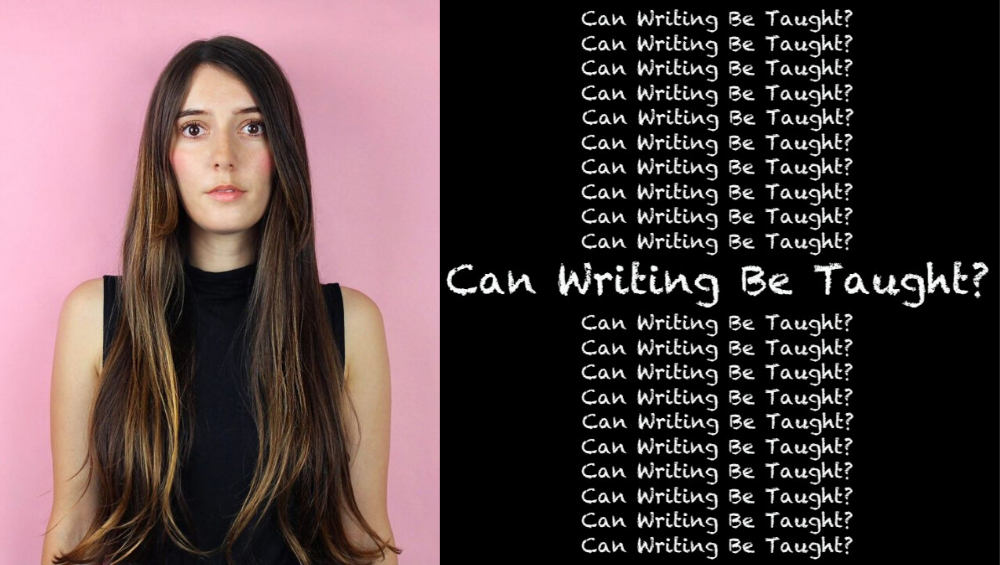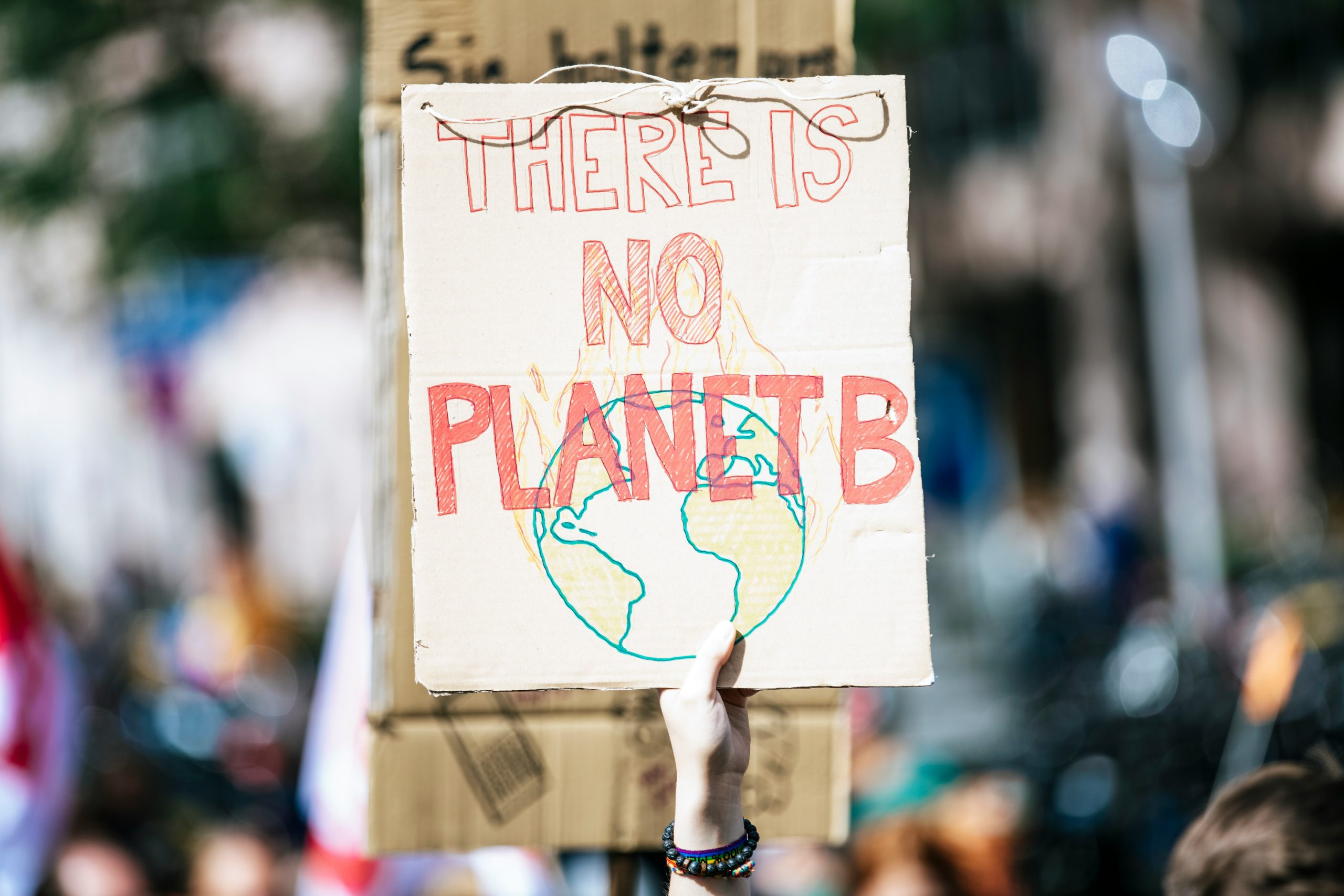interviews
Who Decides What Makes a Good Mother?
Jessamine Chan's novel "The School for Good Mothers" satirizes toxic American parenting culture

The novel The School for Good Mothers begins with Frida Liu–a single working mother who is at her wit’s end–having a bad day that culminates in her losing her daughter to protective services. As her punishment she will be part of a new program to rehabilitate bad moms and if she is successful, then and only then can she get her daughter back. It’s a shocking, scary and biting satire of a culture that will not stop surveilling women’s bodies and minds. It’s the kind of book you interact with–yelling What?? Nooo! then curling into a ball or having your stomach drop at the drama. Tearing through the pages then slamming it shut, afraid of what comes next. Laughing and then snorting because it’s also wildly funny which I’m still so amazed by because how can it be all these things at once?
There is no book I’ve been yearning for longer than Jessamine Chan’s debut novel. I met Chan in graduate school more than a decade ago. She’s the reason MFA programs exist. She’s that mythical person you’re told to find in your graduate program. The one who builds exciting and inviting communities wherever she is. That writer and reader you can share work with forever. Since then, I have been privy to all the ups and downs that come with writing a novel. Then add into the mix having a baby when you weren’t sure you were ready for a baby, when in fact you were writing a dystopian novel about not being sure about having a baby, and it makes sense this book needed time to gestate. But holy shit was it worth the wait.
Chan and I talked over Zoom about parenting, art, identity and power, and just who gets to decide what makes a good mother in an inequitable world.
Diane Cook: Were there questions about motherhood or the future that you were trying to get at by writing The School for Good Mothers?
Jessamine Chan: It’s really hard to put the why of it all into words, because for a really long time, I feel like I was just working out personal questions with the story, because the fear that was driving the writing of the book was really just me being really afraid of having a baby and becoming a mom and taking on that responsibility and changing my life. So I definitely felt like the book was a way to process all that fear and pressure.
I think I also just felt really troubled by modern American parenting culture. Like, even as someone who wasn’t a parent and who was just observing it through my friends who had children, or reading about it in the media, and then reading books about it when I was doing novel research, it just felt so oppressive.
There’s this external cultural pressure, but also all this internal pressure to feel loving and joyful and grateful and patient at every single moment, which just felt so stifling in a lot of ways.
And then I had my baby, and then I was actually living in this hyper-intense parenting culture that I had been satirizing.
DC: And did having your baby affect the direction of the book?
JC: Well, the good thing about being a very slow writer is that it’s almost like the book grew alongside my baby, because I was revising the chapters so slowly that eventually the book and my child were around the same ages. So I could write about babyhood when she was a baby.
And then when she was a toddler, I stole tons of dialogue and also learned about how much a toddler of that age talks, or eats, or how they move. And so, that all got folded into the book. So many of her toddler and infant milestones and memories of her babyhood are woven into the book, I feel like I built a baby memory book within the book. So, instead of finishing her first year baby album, I’m giving her a dystopian novel.
DC: There’s this moment in the book I want to talk about. When Frida is awaiting the verdict on her mothering the Judge–Frida’s judge!—tries to console her by saying basically, Hey I have two kids and four grandkids so, I understand how anxious you are right now. It’s such an awful moment. The kind of thing that slices so deep and is so insidious; this idea that because we have had the umbrella experience–being a mom!—that we understand the ins and outs of every other mother’s experience. She assumes her experience is everyone else’s experience, and if it isn’t, well that’s on them.
This whole dystopian apparatus you’ve set up in this future world comes from a total lack of empathy for, or the ability to relate to, people with different experiences than your own. It struck me as one of the basic building blocks of the book—this inability to see mothers as individuals and only see them as robots that can be programmed to care for their children.
JC: I think what I was trying to get at, with this dystopian school and these oppressive new rules, was the idea that it’s possible for anyone to know better. A lot of people in power believe that they know better, or they know best for a particular family, or what’s best for the child in a particular family.
One inspiration for the book came from a Rachel Aviv article in The New Yorker called “Where Is Your Mother?” which followed a single mom who left her toddler at home alone and then never got him back again.
But what struck me about the article was that the woman was an immigrant. She wasn’t American. And they were judging her parenting, her personality, her way of communication, and her depth of feeling by very American, Western standards—this Western ideal of how a mom is supposed to behave and how tender she’s supposed to be. I just felt so angry on that mother’s behalf. There was this other system coming in and telling her what the standards were supposed to be and why she was a failure. And they weren’t taking into account that she was from a different culture or any details of her personality. She was a person who deserved a second chance, but never got one.
What surprised me—once I started reading about the issue of termination of parental rights and kids who get taken away from their parents—was that it was so much more pervasive than I thought, which was just shocking because it feels like the greatest nightmare of all to have your kid taken away by the government. But that’s happening all around us.
DC: When Frida gets to the School, she notices mostly Black and Brown moms, a few white moms scattered in. So, in this dystopia, mothers are being surveilled, but not all mothers. Like, every mother has done something that they are not proud of or that they regret, right? But not every kind of mom is represented in that place. And so it made me think about who gets surveilled and who are the ones that the state or this governing power thinks needs intervention?
I haven’t had many chances to read about Asian American women being messy on the page… Just being flawed in all the ways that make people more real as characters.
JC: I wanted the book to gesture at the fact that the way that we are surveilled is different depending on race and class. And that we don’t all face the same amount of monitoring from the government or the police. What I learned in the reading I did was that the circumstance of getting caught up with Child Protective Services and potentially losing custody and being dragged through the courts primarily happens to poor Black and Brown women.
DC: She also notices that she’s the only Asian American or Chinese American mom there.
JC: In reality, someone of Frida’s race and class would not typically be caught. So she’s alone and the ultimate outsider. And so that gave me, as the writer, a much broader perspective.
And I feel like I haven’t had that many chances to read about Asian American, or Chinese American women, being messy on the page, and not making the right decisions or being selfish. Or being self destructive and desiring or even having anxiety and depression. Just being flawed in all the ways that make people more real as characters. I wanted Frida to get to be messy.
DC: Do you think that’s partly why she gets caught? She doesn’t fit into a flat stereotype and maybe that made the world take notice and surveil her more?
JC: I don’t necessarily think that was it. I mean, I’ve had white friends whose children are sitting in the car, who run back into the store to pick up their wallet off the counter that they forgot and they come back to the car, having been gone for 30 seconds, and there’s someone standing at their car door saying, “I was about to call the cops on you.” And that is in suburban Connecticut. I wanted Frida to have her very bad day in a world where there’s a lot of those good samaritan phone calls to the police, but not have support in her community.
DC: No one is rooting for her.
The way that you judge a person’s fitness as a parent is always gonna be informed by your experience of race, culture, and class and what you think good and bad parenting is.
JC: I wanted her to be not at ease in her community. Throughout my whole life, I’ve often been the only Asian person in the room. And I guess I wanted to speak to that in some way. It’s so ingrained in my experience of being a person in the world to be the only person who looks like me in the room. Sometimes I’m in a crowded space and I’m sometimes the only person of color. And it’s been like that since childhood. It’s an experience of always being an outsider and always having the slight discomfort of not seeing people who look like you.
I never imagined giving Frida any Asian allies in the School. I guess I wanted to write about race in a way that asked more questions rather than me making any grand statements.
DC: It’s so interesting that the mothers in the book end up taking care of robot babies as a stand in for their real children, because it feels like they’re being taught to be robotic moms. Like, you cannot be a mother without fluctuations and feelings. You cannot be a mother without making mistakes and having to apologize to your kid. I apologize to my daughter often because I do something that I know was human but kind of shitty. You know what I mean?
JC: But I think the feeling bad about the shitty moments is something from today’s parenting culture.
30 years ago, moms had shitty moments and didn’t apologize. They just got on with their day because there wasn’t a culture. Which is part of the culture of motherhood that I’m satirizing—where you not only have to have a perfect house, perfect career, and perfect marriage, you also have to be 100% on point for your child at every moment of the day and love it every moment of the day. And I feel like that’s really oppressive.
The idea of reeducation and parenting classes [in the book], that is from real life. The version I wrote is insane, but there is a kernel of truth in real life where there are court mandated parenting classes and parenting coaches and manuals. And your progress is judged in order to get custody of your kids again. I thought it was so bonkers, but it’s just part of our system.
DC: Even if we all agree there needs to be more room for mothers to define what good parenting is, it seems impossible there won’t still be a limit or line that moves someone from the acceptable to unacceptable category. And so there will always be people whose actual job is to judge and then inform others of where they fall.
In some sectors of American culture, once you’re a mother, that role defines you and negates the rest of your personality or anything that came before.
JC: This book is not proposing answers and I’m not proposing answers. Do I have a way of fixing a flawed system? No. But I think I wanted to call into question whether or not any of those decisions can be made free of bias. Because individual judges and individual social workers are making decisions that will potentially change a family’s life or a person’s life forever. But how can those decisions be made in a vacuum? How can those decisions ever be fair? Because the way that you judge a person’s fitness as a parent is always gonna be informed by your experience of race, culture, and class and what you think good and bad parenting is.
DC: There’s this section early in the book when Frida is waiting to hear about what will happen to her, and she fully expects to get Harriet back because there really is no other possible reality in her mind and she’s describing how she’s gotten her room all ready for her and—
JC: You sent me an email saying, “She stocked her fridge. No.”
DC: It fucking destroyed me. Because, I mean, I’m not spoiling anything by saying she doesn’t get Harriet back then. She has to go to the School to be reeducated. But there’s a couple pages where we learn what exactly the counselors and case managers observed and reported about her. It’s all so contradictory and reading it you get this sense like water funneling and going down a drain. You realize there was no way she could ever do anything “right” in the situation. Because it’s all in the eye of the beholder who already has a judgement or a perspective in which Frida is bad.
JC: There’s this premise that these decisions are gonna be objective, but how can it be anything but subjective?
DC: One thing I loved though is that these characters, who are being punished for their bad mothering, sometimes push back against the idea that they are bad. They think, “There must be something good about me… right?” The only way they get their kids back is to conform to these state sanctioned standards which are totally out of reach, and yet they defiantly hold onto pieces of themselves even though the stakes are so high. Can you talk about balancing their sense of self and their role as moms?
JC: I wanted to explore how Frida holds onto her integrity while being indoctrinated. In some sectors of American culture, once you’re a mother, that role defines you and negates the rest of your personality or anything that came before. The oppressive state standards were my way of taking something that bothered me about our culture and making that feeling literal. So instead of saying, yeah, mothering should be your first priority, the School says “All you are is a mother. You should have no other thoughts or desires besides your child’s safety and well-being.” Which makes the mothers desperately cling to what remains of their identity and keep some part of themselves secret and out of reach.
DC: We talk about being art moms sometimes. Why do so many art moms have such a hard time justifying their work? Do lawyer moms and doctor moms and teacher moms have just as much angst as I do about the time I want or need to spend working versus being with my children?
JC: For me, what’s hard about being an art mom is that the art requires complete immersion and devotion and concentration and so does the human child. And I think what’s hard about the balance is that there’s no set structure for it. I’m sure it’s also very, very hard to be a professional in most anything right now. I’m sure just parents in general are having a hard time. But I think what’s hard, for me, about being an art mom is that I could technically be working on the art all the time.
DC: Yes, me too.
JC: It just requires a different conversation in your head to prioritize the work when the work is art, because the world treats that as not real work. I have found it hard to ignore that message that what I’m doing is a selfish pursuit. And so I constantly have to have the conversation that it is okay to do this thing that the world sees as maybe selfish or foolish and unworthy and to take time away from my child to do that. So it’s a whole other layer of pep talks. It’s just hard to get rid of the guilt. Like I don’t want to feel guilty, I just do. And I can see why all the messages from society are wrong, but the guilt—it’s still there.
DC: What’s amazing is that I found myself succumbing to suggestions in the book about how I should behave as a mother. The school is so certain of their standards that I would start to think they’re right. I’m reading as a mom and thinking to myself, “Wait, I don’t do that–should I be doing that? Like, I don’t talk to my kids in motherese, should I be???” And I’d have an anxious moment before I remember this is satirizing this absolutist thinking about what mothers should be. It’s incredibly potent.
JC: The satire was my way of processing my thoughts, feelings, and anxiety about a generally upper-middle-class and white American parenting culture and all the pressure. I found, and still find, the sheer number of instructions about any parenting task or decision to be overwhelming, so part of the satire was taking the idea of instruction and making it insane.
Through satire and using speculative elements, I wanted to call into question who is making those rules and whether it’s possible to ever have a set of universal standards that’s separate from the influence of race, class, and culture. How can the teaching of parenting ever be truly objective?









